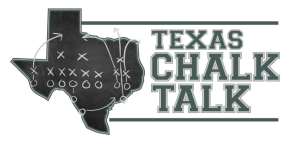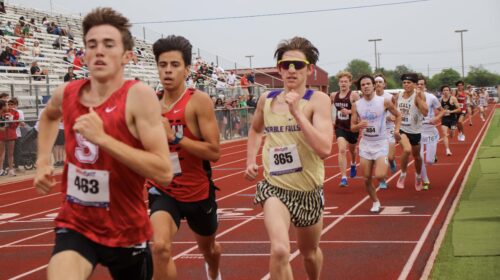Bowlsby’s state of Big 12: Baylor, conference title game, revenue & more Baylor
Big 12 Commissioner Bob Bowlsby touched on a number of items in his opening remarks that included conference expansion, the success of members on the playing field and in the classroom, revenue distribution, scheduling and player conduct. Most of the questions, however, were centered on what happened at Baylor, the sexual assault and the role the conference is playing.
Bowlsby was the first speaker of Big 12 Media Days that began July 17.
“We’ll get more information than the public; we already have,” he said. “We already have more than the public on an oral basis. So any discussion on the steps the conference will take is premature at this point.”
He noted the firm Pepper Hamilton, which Baylor hired to conduct the investigation, wouldn’t release information to his office. And there is no written report, so the information will be given to the Big 12 by Baylor, Bowlsby said. He met with several Baylor officials, including new President David E. Garland and some members of the university’s board of regents.
He cautioned against using “a broad brush” to paint an image that these kind of things happen only at Baylor. The commissioner added the conference is interested in doing what it can to eliminate assault on each member’s campus.
“When one member’s reputation is damaged, I think all of our images are damaged,” he said. “I think it’s an affiliational issue that we all share. I think some have stronger feelings than the others, and we will probably hear more about that. … There are a lot of pending processes in place right now, and all of that is not going away any time soon. So to say we have a vision for what the end game would be is not accurate.”
As for the conference championship game, set to be played next season, Bowlsby said the conference is still exploring options on what to do. Bowlsby sounded definite on one part — creating a sub group of athletic directors that will include three people that will advise the full group of athletic directors, on the best options. The CEO group will make the decision.
“Among the things that I would expect to happen, as I think we will probably end up playing two divisions, I think our two champions of those divisions likely will play each other in the championship game,” he said. “I think we’ll definitely play the game at a neutral site. I don’t see us playing on campus, and we’ll likely go through an RFP process.”
Bowlsby said the conference has talked about the different ways the teams would qualify for the championship game. Among them is to split into separate divisions, geographical designation, or staying in one division, though he noted he “sensed less enthusiasm for that.”
“We have to overlay traditional rivalries, how you do that and how you separate them,” he said. “One of the things we’d like to do is avoid late-season rematches if we can. So as you look at divisions, you want to try to be thoughtful about the rivalry games. Had we had a championship game last year, it would have been a rematch of Oklahoma State and Oklahoma, and it would have been a week after they just played.”
ESPN and FOX are the television partners. Fox will televise the game in odd years, while ESPN will show it in even years. Bowlsby said kickoff times will be between 11 a.m. and 7 p.m. local time.
“We’ve got a lot of work to do on scheduling, and the divisional structure is going to be a big part of it,” he said.
Bowlsby summarized the success of the Big 12 teams on the national level: three national championships, six runner-up finishes and 16 top four finishes. Seventy percent of the conference played in a football bowl game and 70 percent of the men’s basketball teams played in the NCAA Tournament.
Of equal importance was the amount of revenue sharing among the members. The commissioner said this is the first year more than $30 million was distributed to the universities. TCU and West Virginia will be equal members this year.
Love it? Hate it? Want to tell me to take a hike? Let us know!


